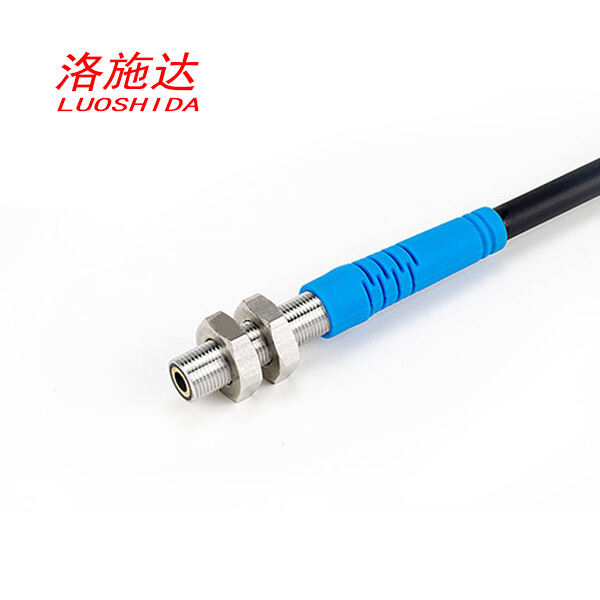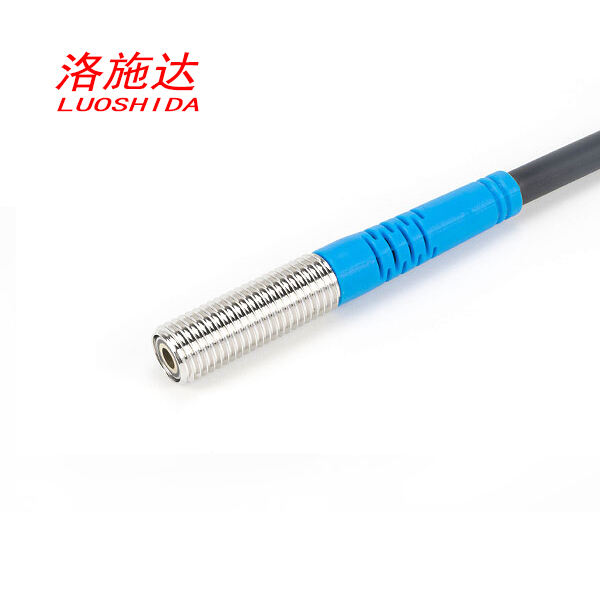Improve Industrial Operations with Advanced Torque Sensors
The Critical Role of Torque Sensors in Industrial Efficiency
Enhancing Precision in Mechanical Systems
Torque sensors play a key role when it comes to getting better precision from mechanical systems. These devices measure rotational force very accurately which means machines run better and last longer overall. When manufacturers get good readings on torque, they see less damage happening over time, so operations become more efficient across the board. Companies that spend money on quality torque sensors tend to make fewer mistakes during assembly work, cutting down big time on expenses related to product warranties and fixing broken equipment later. Research across various factories shows that adding these sensors into production lines can boost how well things run by around 25 percent. What this really means is that proper torque measurement isn't just some technical detail anymore it's actually changing how productive industries are becoming day after day, especially for those looking to get the most out of their manufacturing setups without breaking the bank.
Applications in Automotive and Aerospace Manufacturing
Torque sensors have become essential in the automotive industry for making sure parts are tightened properly on assembly lines. Getting this right makes all the difference when it comes to how safe and reliable vehicles end up being. Without these sensors, manufacturers risk problems from bad assembly work that could leave cars failing to meet those tough safety requirements they need to pass. The same goes for aerospace manufacturing too. Here, torque sensors monitor exactly how much force gets applied while putting together important parts of planes and spacecraft. Meeting aviation regulations becomes much easier with accurate readings from these devices. According to some studies, using torque sensors cuts down failures in stressed components by around 30% across both car and aircraft production. That means safer products overall and longer lasting ones at that something absolutely necessary for sectors where getting things right matters most.
Synergy Between Torque Sensors and Proximity Detection Systems
Integrating Inductive Proximity Sensors for Safety
Making industrial workplaces safer often starts with combining inductive proximity sensors alongside torque sensors. These devices basically tell us where mechanical components are located and if anything unexpected happens. When something goes wrong, the system just shuts down automatically before anyone gets hurt. This kind of automatic response stops accidents from happening and saves money on repairs too. The way these two sensor types work together creates much better safety measures than either could alone. Some research shows that factories implementing this setup see accident rates drop by around 40% or so. Of course, getting these sensors installed takes planning and budgeting, but many manufacturers find it worth the investment when looking at long term worker protection and equipment longevity.
Photoelectric Sensor Types for Adaptive Automation
Photoelectric sensors come in different forms like reflective and through-beam models, and they really boost what torque sensors can do within automated setups. These devices collect information on the fly, which makes torque readings much more accurate, particularly when working conditions change constantly during production runs. When manufacturers install multiple kinds of photoelectric sensors across their facilities, operations run smoother and adapt better to varying situations without losing track of measurement accuracy. The combination works wonders for both precision and flexibility in automation systems that many factories rely on today. Being able to react quickly to changing data means fewer mistakes happen overall, something plant managers care deeply about when trying to keep costs down and productivity up.
Advanced Sensor Solutions for Precision-Driven Industries
M6mini Photoelectric Sensor: Compact Infrared Detection
What makes the M6mini sensor so special is its small size combined with really good infrared detection abilities, which works great when there isn't much room to spare. The sensor can pick up on tiny changes accurately, something that gives torque sensors a real boost in cramped spaces where regular sensors often fall short. Factory workers across different industries have noticed much better precision since switching to these sensors, and many say they've had fewer problems with inaccurate readings compared to older models.

M8mini Photoelectric Sensor: Brass Nickel-Plated Durability
Built with brass that's coated in nickel plating, the M8mini sensor can handle tough environments without breaking down, which means it stays reliable when torque measurements matter most. What makes this sensor stand out is how durable it actually is while still delivering pinpoint accuracy where it counts. Maintenance becomes something that happens rarely rather than regularly, saving time and money in the long run. Industry professionals tend to point people toward the M8mini whenever they need sensors that won't fail under pressure. Manufacturing plants especially appreciate these characteristics because downtime costs far more than regular maintenance would ever cost.

M18 Plastic Capacitive Sensor: IP67 Protection for Harsh Environments
The M18 plastic capacitive sensor comes with an IP67 protection rating which means it stands up really well to dust and water exposure, helping extend the life span of torque measurement systems significantly. We find this kind of durability particularly valuable when working outdoors where sensors get exposed to all sorts of weather conditions. Farmers and construction workers rely on these sensors daily because they just keep going without failing. According to industry reports, machines fitted with IP67 rated sensors tend to last about half again as long in tough environments compared to standard models. That kind of longevity speaks volumes about how solidly built the M18 sensor actually is, making it worth the investment for anyone dealing with harsh operating conditions regularly.
Key Benefits of Upgrading to Modern Torque Measurement Systems
Real-Time Data for Predictive Maintenance
When businesses upgrade their torque measurement systems, they gain access to live data that makes predictive maintenance possible while cutting down on those frustrating surprise breakdowns and expensive repairs. The newer systems actually analyze how torque levels change over time through sophisticated software tools, which lets them spot problems before they become major issues. Maintenance teams can then plan their work better instead of reacting to emergencies all the time. Some studies show companies that switched to this kind of proactive maintenance saw their operating expenses drop between 20 and 25 percent. That's why so many manufacturers are now investing in smart tech for their torque monitoring equipment. It just makes sense when looking at both reliability factors and bottom line savings.
Reducing Downtime with Wireless Connectivity
Torque measurement systems with wireless features cut down on equipment downtime in ways that wired alternatives simply cannot match. These wireless sensors send data across the network effortlessly, so technicians spot issues with torque readings almost instantly before they cause bigger problems. The real advantage comes from being able to monitor these systems remotely. Maintenance crews don't have to shut everything down just to check connections or calibrate instruments anymore. Some manufacturers report around a 30 percent drop in unplanned stoppages after switching to wireless solutions. For production facilities where every minute counts, this kind of reliability makes all the difference between meeting quotas and falling behind schedule.

 EN
EN
 AR
AR
 FR
FR
 DE
DE
 IT
IT
 JA
JA
 KO
KO
 PT
PT
 RU
RU
 ES
ES
